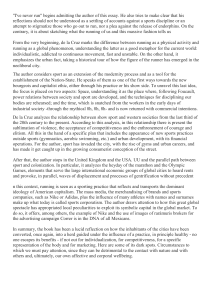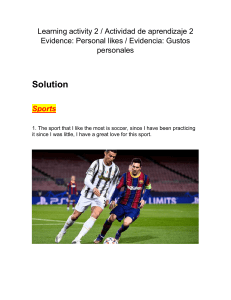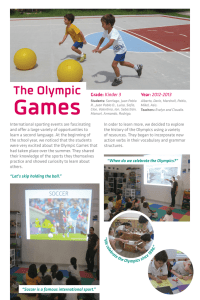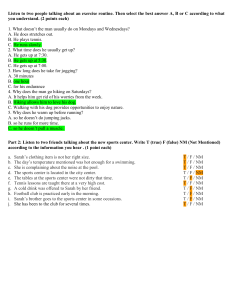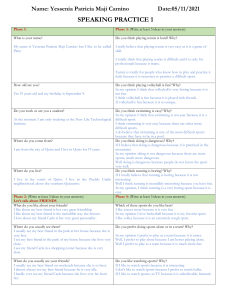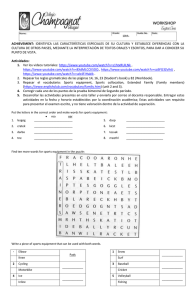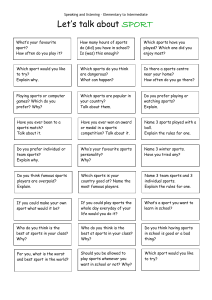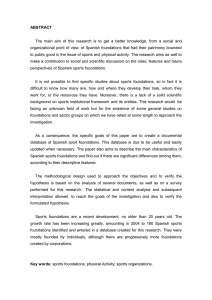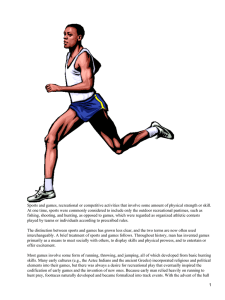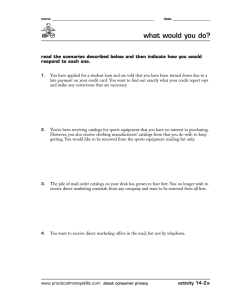Press release from the Higher Sports Council (CSD)
Anuncio
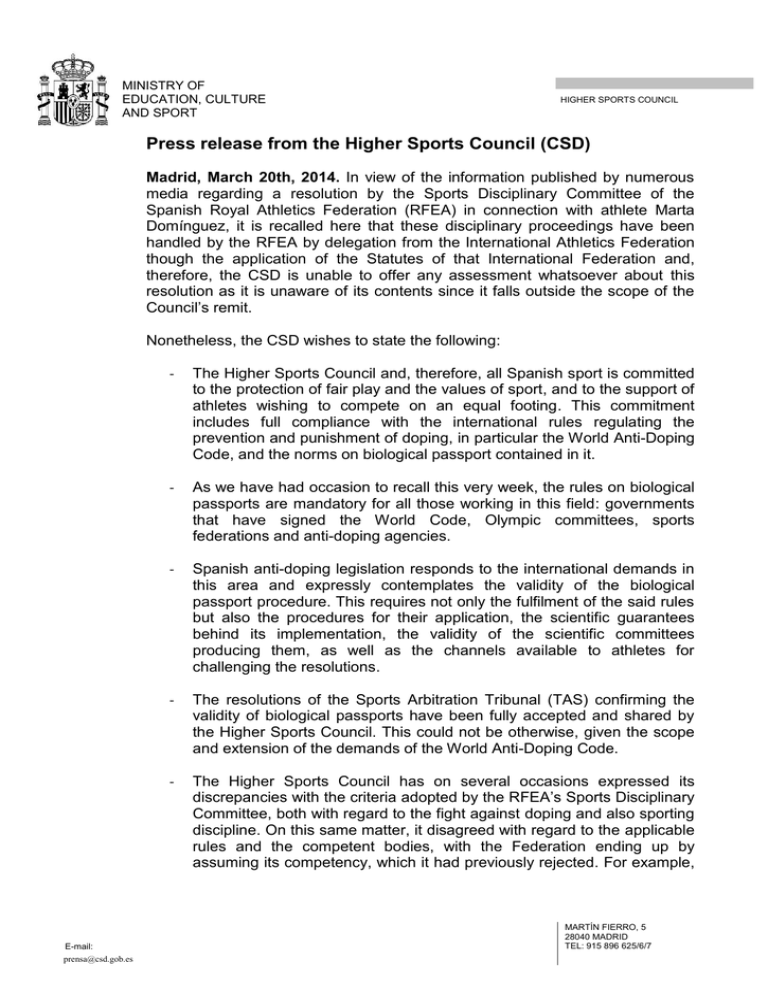
MINISTRY OF EDUCATION, CULTURE AND SPORT HIGHER SPORTS COUNCIL Press release from the Higher Sports Council (CSD) Madrid, March 20th, 2014. In view of the information published by numerous media regarding a resolution by the Sports Disciplinary Committee of the Spanish Royal Athletics Federation (RFEA) in connection with athlete Marta Domínguez, it is recalled here that these disciplinary proceedings have been handled by the RFEA by delegation from the International Athletics Federation though the application of the Statutes of that International Federation and, therefore, the CSD is unable to offer any assessment whatsoever about this resolution as it is unaware of its contents since it falls outside the scope of the Council’s remit. Nonetheless, the CSD wishes to state the following: E-mail: prensa@csd.gob.es - The Higher Sports Council and, therefore, all Spanish sport is committed to the protection of fair play and the values of sport, and to the support of athletes wishing to compete on an equal footing. This commitment includes full compliance with the international rules regulating the prevention and punishment of doping, in particular the World Anti-Doping Code, and the norms on biological passport contained in it. - As we have had occasion to recall this very week, the rules on biological passports are mandatory for all those working in this field: governments that have signed the World Code, Olympic committees, sports federations and anti-doping agencies. - Spanish anti-doping legislation responds to the international demands in this area and expressly contemplates the validity of the biological passport procedure. This requires not only the fulfilment of the said rules but also the procedures for their application, the scientific guarantees behind its implementation, the validity of the scientific committees producing them, as well as the channels available to athletes for challenging the resolutions. - The resolutions of the Sports Arbitration Tribunal (TAS) confirming the validity of biological passports have been fully accepted and shared by the Higher Sports Council. This could not be otherwise, given the scope and extension of the demands of the World Anti-Doping Code. - The Higher Sports Council has on several occasions expressed its discrepancies with the criteria adopted by the RFEA’s Sports Disciplinary Committee, both with regard to the fight against doping and also sporting discipline. On this same matter, it disagreed with regard to the applicable rules and the competent bodies, with the Federation ending up by assuming its competency, which it had previously rejected. For example, MARTÍN FIERRO, 5 28040 MADRID TEL: 915 896 625/6/7 on this disparity of criteria, it must be recalled that, in connection with an athlete whom the RFEA’s Sports Disciplinary Committee decided not to subject to disciplinary proceedings for doping with an interim suspension, despite a request from the Higher Sports Council in this sense, the Sport Arbitration Tribunal (TAS) indicated: “the panel of arbiters wishes to express in the clearest possible terms that it has no intention of condoning the improper conduct of Mr. X, (…). The exchange of emails enquiring about how to commit doping and how to avoid the control mechanisms is a blow to the very heart of the fight against doping. (…) Mr. X. must consider himself extremely fortunate through having benefited from the improper procedures used by the Spanish Athletics Federation (RFEA) and from the shortcomings in the RFEA’s selection criteria”. - The Higher Sports Council will spare no effort to ensure that the fight against doping is an unquestionable reality accepted by all institutions, as a guarantee and protection of all athletes wishing to compete on an even footing. It is our responsibility and our obligation. MINISTRY OF EDUCATION, CULTURE AND SPORT HIGHER SPORTS COUNCIL
